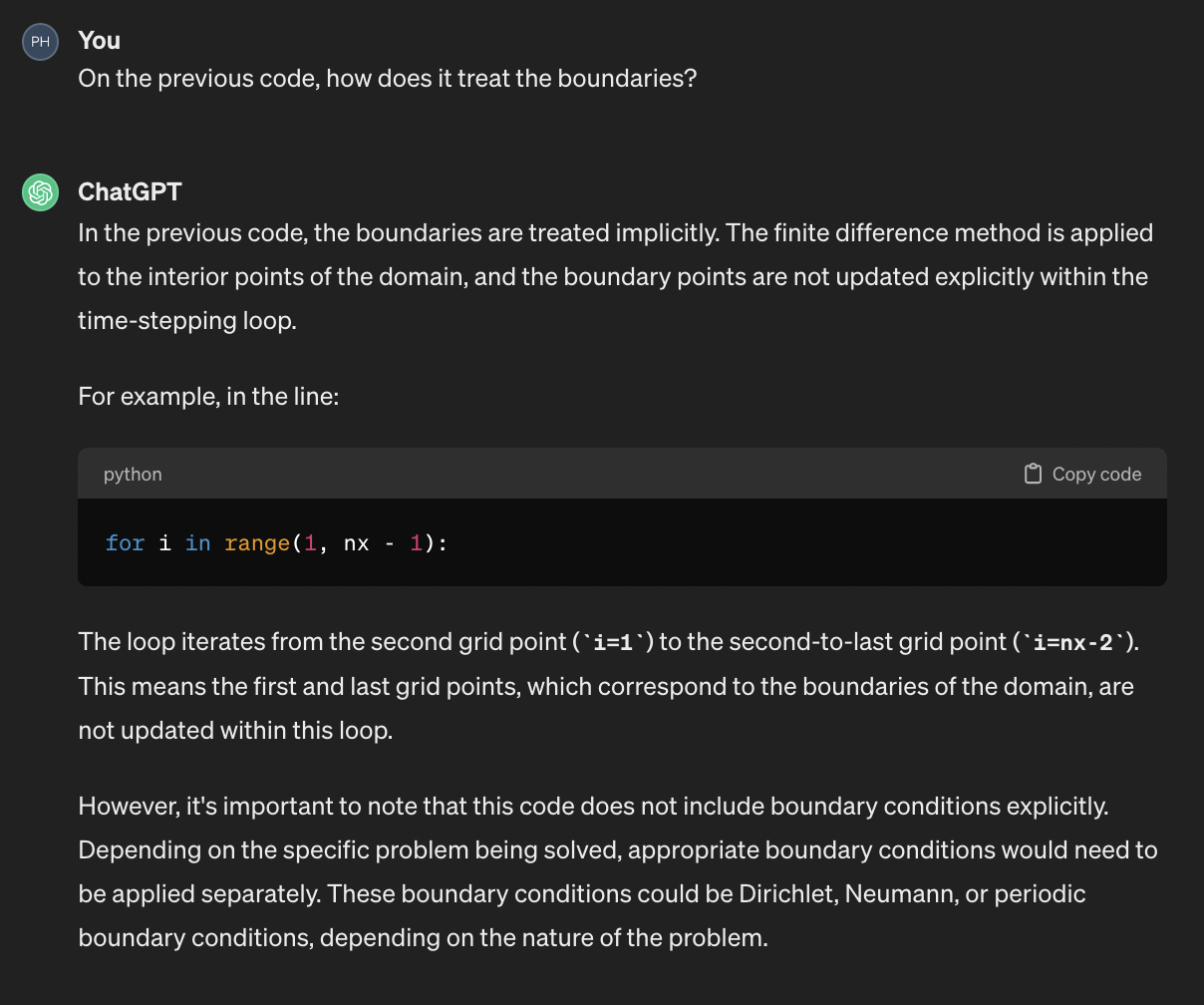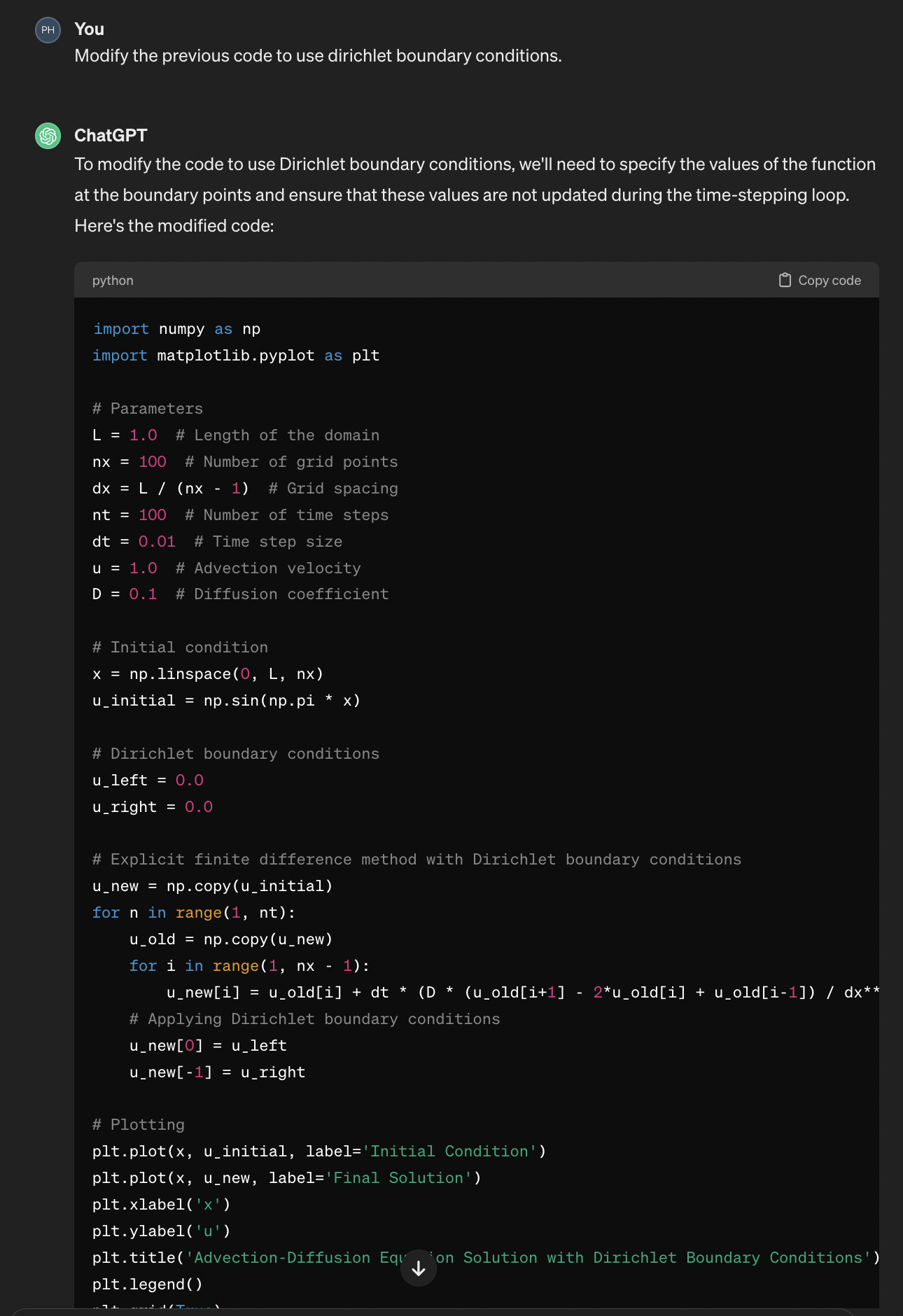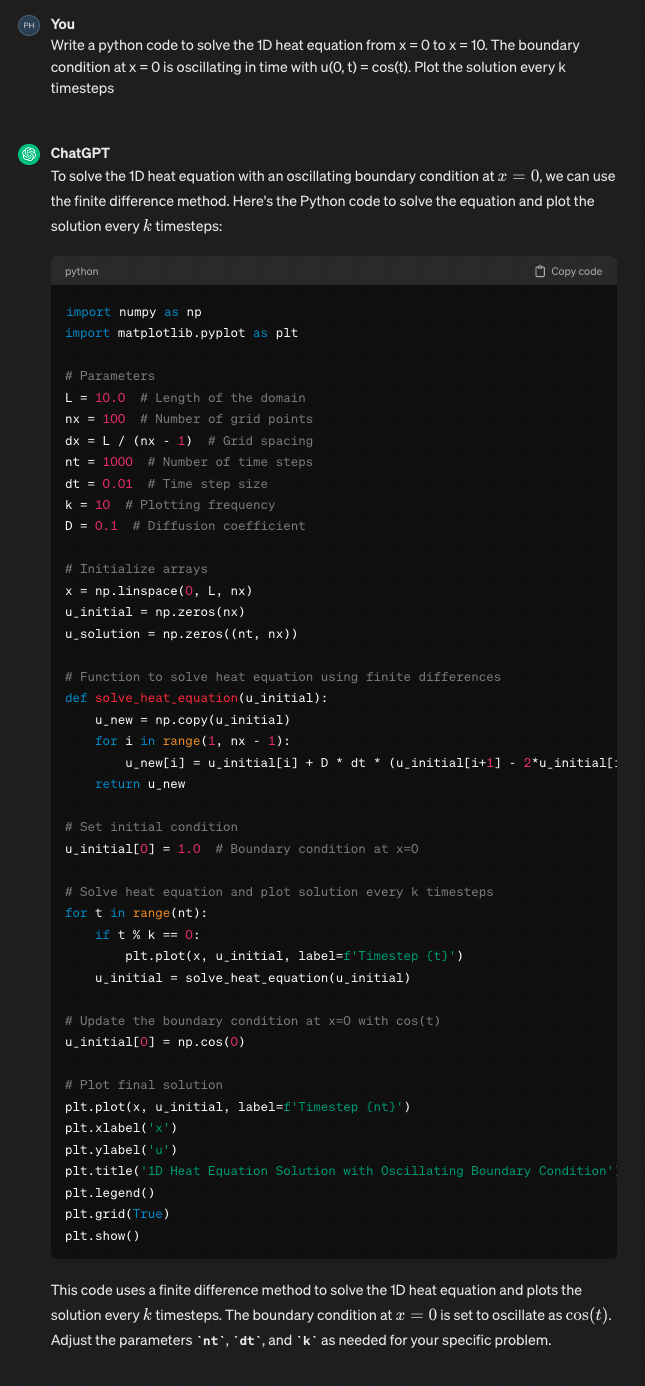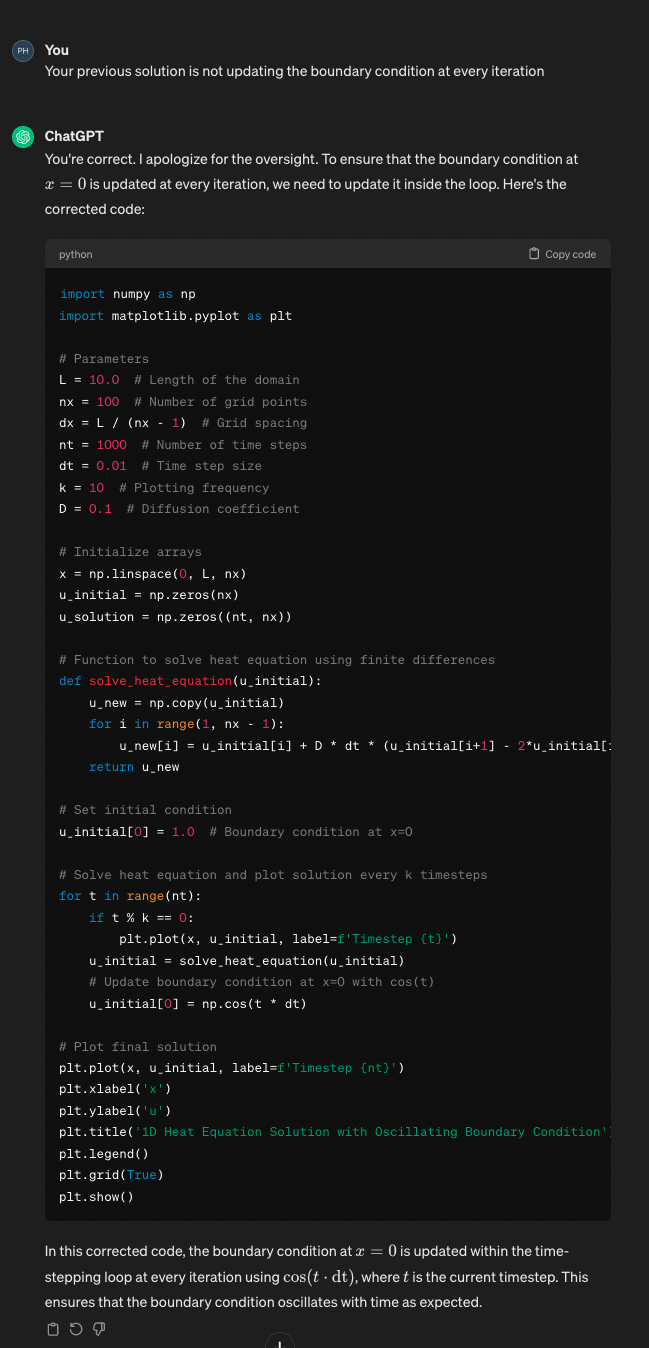def myfunc():
print(a)
a = 1
myfunc()
a = 2
myfunc()
a = 3
myfunc()1
2
3During the 27 Feb 2024 lecture, the question of variable scope came up. Firstly, here is what ChatGPT says:

So indeed it looks like Python uses a scheme where if a variable is not locally declared, it will use values of the variable outside of the function. This can allow us to produce this kind of thing:
def myfunc():
print(a)
a = 1
myfunc()
a = 2
myfunc()
a = 3
myfunc()1
2
3So I was wrong! Python variables are global when defined outside the function! Here is a reference.
This is certainly easier to use! However it can lead to confusion because for very complex codes, you may not be sure what value of a variable is being used within a function. Because most of the programming you will do in this course is very simple, this is unlikely to lead to trouble.
It’s generally good to avoid this whenever it is possible, though. For instance in this particular case, it makes much more sense to pass in the variable.
def myfunc(a):
print(a)
a = 99
myfunc(1)
myfunc(2)
myfunc(3)1
2
3In the above case, the a that appears in the function is different from the a that is declared outside the function. This makes it very easy to understand what your function is doing without knowing what is happening outside of it.
For example, there is no danger of values being reset:
def myfunc(a):
a = a + 1000
print(a)
a = 99
myfunc(1)
myfunc(2)
myfunc(3)
print(a)1001
1002
1003
99We should have an informal discussion of how the use of GenAI in education. Does it help with coding? When should it shoudn’t it be used?
Asking something simple.

Wait a minute… 
Modifying.. 
Modifying again to oscillate in time… 
Oops! 